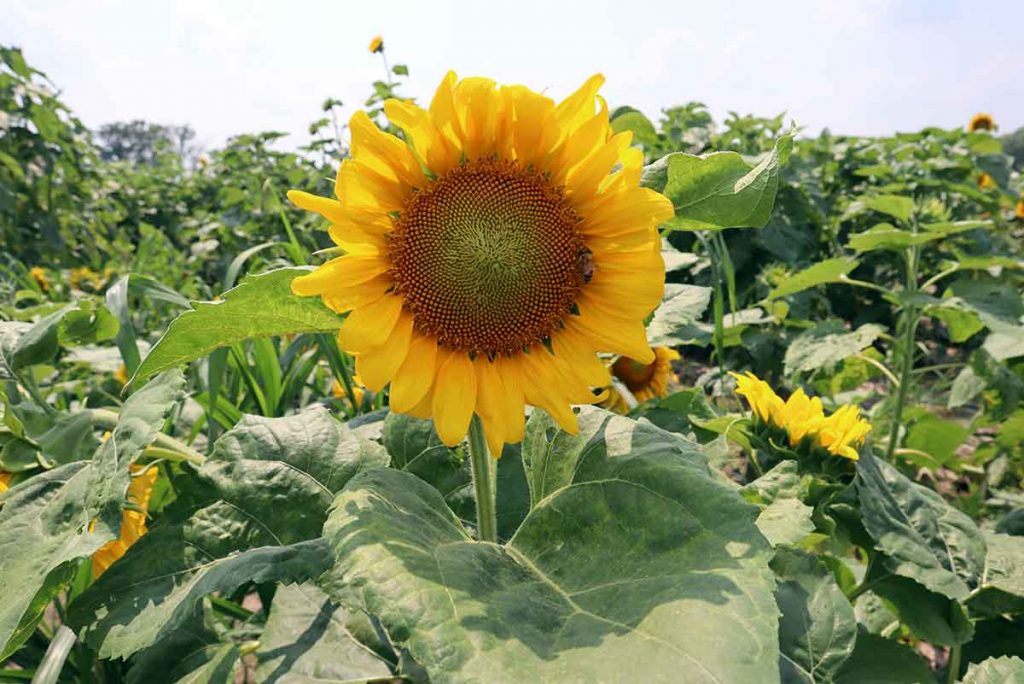David Woodburn, CEO of St. Louis-based agtech startup Edison Agrosciences, vividly remembers the first time he saw a commercial sunflower field. It was years ago, during a family road trip through South Dakota, and he recalls being struck by the flowers, in all of their golden glory set against a bright blue sky, covering the gently rolling landscape as far as the eye could see — and so extensively, the scene seemed infinite. And yet despite how profound the experience was, it would be many years before he’d come to understand the plant’s full power — one that is poised to solve one of the most vexing problems in the U.S. supply chain.
“There are over 2,000 plants that naturally produce rubber, and sunflowers are one of them,” Woodburn says. “From a density standpoint, they don’t produce the most per plant compared to others, but they are already widely planted on over a million and a half acres in the United States. Farmers already know how to grow them. We have a seed industry already dedicated to them. If we could just make them produce a little more natural rubber, we could leverage what we already have in place so they would be a commercially viable domestic source.”
Like Woodburn, Matt Crisp and Thomas Hohn have been in awe of the sunflower for many years — pretty much from the moment they learned of the plant’s potential as a game-changing resource. In 2013, the pair co-founded Edison Agrosciences with the goal of using biotechnology and plant genomics to increase the natural rubber that the sunflower already naturally produces, hoping that this increased yield would lead to a commercially viable solution for a problem that has plagued the domestic supply chain for as long as rubber became an important commodity. READ MORE

